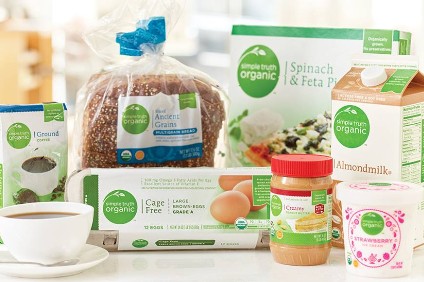+7 495 662 6819
-
How We Help
- Strategy and Enterprise Value Growth
- Corporate governance and independent directors
- New retail concepts and strategy
- Retail 4.0 and omnichannel transformation
- Customer-focused category management
- Retail pricing strategy and business processes
- Customer loyalty strategy and experience
- Private Label and Brand Strategy and Portfolio
- Solutions
- Insights
- Who We Are
- Contact
-
How We Help
- Strategy and Enterprise Value Growth
- Corporate governance and independent directors
- New retail concepts and strategy
- Retail 4.0 and omnichannel transformation
- Customer-focused category management
- Retail pricing strategy and business processes
- Customer loyalty strategy and experience
- Private Label and Brand Strategy and Portfolio
- Solutions
- Insights
- Who We Are
- Contact
|
It depends on your strategy. Is it more important to have a high penny profit on select items or is it more important to have a long-term business building strategy that brings loyal customers into your store, and keeps them coming back? All products are not created equal Private label products have a place on retailer shelves but should not be the primary strategy for any retailer wanting to grow sustainable sales and delight their shoppers. Customers shop brands first and usually turn to private label as a cost savings. Most consumers will gladly pay a premium for quality, even perceived quality.
What is private label, frequently referred to as the store brand? Private label items typically come from a couple different places, branded manufacturers, and private label suppliers. Some manufacturers produce a lesser version of their branded item to help significantly offset operating costs. This enables them to qualify for volume discounts on bulk raw materials, maximize production efficiencies, reduce shipping costs, etc. Some branded manufacturers usually divert their “seconds” into their private label products. The natural channel was built on the backs of brands. They provide the excitement in the category encouraging consumers to shop their brands. Innovation comes from brands and branded manufacturers. They also support retailer marketing initiatives and many give back to their communities. Branded items offer the promise of trust and consistent quality while private label typically varies greatly between retailers. Brands are customized or uniquely crafted to address specific customer needs and wants. They encourage consumers to “trade up” and are responsible for category growth. Price should never be the only factor when developing a business strategy. Consumers, especially natural consumers, are willing to pay a premium for quality products that fit all of their needs. Consumers want value for their money. If price were the only factor then no one would ever pay $4.99 for a dozen premium organic free-range eggs when they can buy a dozen private label eggs at a mainstream retailer for $1.67. Private label should be viewed as a low-cost alternative to branded items – never as a business building solution. Consider this; Walmart discontinued most national brands to expand their private label. They quickly learned that previously loyal customers stopped shopping in their stores because their favorite brands had disappeared. Walmart started adding branded items back on the shelves to correct this. This was an expensive lesson for them – a failed experiment that should not be tested in the natural channel. If price was not a concern, which would you trust more, a branded or a private label organic yogurt? Natural brands have a reputation for being produced by passionate people with a commitment to better products, the highest quality ingredients, the community, growing the natural products industry, organic farmers, fair business practices, transparent product labeling, etc. How much do you know about the private label manufacturer? Dan’s mission is “Empowering Brands and Raising The Bar”. His weekly newsletter, educational podcast and training courses have become an invaluable resource for brands and retailers seeking a competitive advantage. To learn more or connect with Dan, visit BrandSecretsandStrategies.com or email [email protected]. ©2018 Brand Secrets and Strategies. All rights reserved. 8/30/2021 07:39:23 am
I can see that organic food is produced by passionate people. Those are the people I'd like to support. So I'll see what I can do.
Reply
Leave a Reply. |


 RSS Feed
RSS Feed
5/10/2019
1 Comment